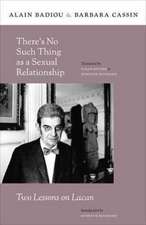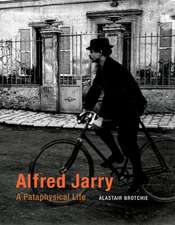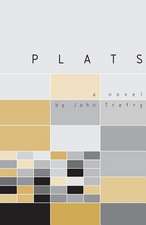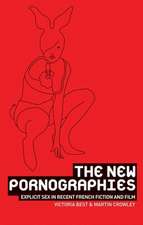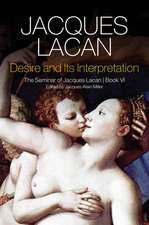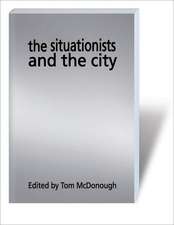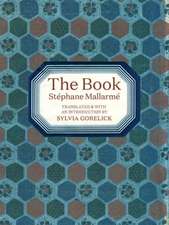Living Currency
Autor Pierre Klossowski Editat de Daniel W. Smith, Dr Nicolae Morar, Vernon W. Cisneyen Limba Engleză Paperback – 5 apr 2017
| Toate formatele și edițiile | Preț | Express |
|---|---|---|
| Paperback (1) | 91.73 lei 3-5 săpt. | +69.10 lei 7-13 zile |
| Bloomsbury Publishing – 5 apr 2017 | 91.73 lei 3-5 săpt. | +69.10 lei 7-13 zile |
| Hardback (1) | 340.25 lei 6-8 săpt. | |
| Bloomsbury Publishing – 5 apr 2017 | 340.25 lei 6-8 săpt. |
Preț: 91.73 lei
Preț vechi: 153.37 lei
-40% Nou
17.55€ • 18.30$ • 14.59£
Carte disponibilă
Livrare economică 27 februarie-13 martie
Livrare express 13-19 februarie pentru 79.09 lei
Specificații
ISBN-10: 1472508599
Pagini: 144
Dimensiuni: 129 x 198 x 14 mm
Greutate: 0.18 kg
Editura: Bloomsbury Publishing
Colecția Bloomsbury Academic
Locul publicării:London, United Kingdom
Caracteristici
Notă biografică
Pierre Klossowski (1905-2001) was a French philosopher, translator, and artist. Vernon W. Cisney is a Visiting Assistant Professor of Philosophy at Gettysburg College. He is the author of Derrida's Voice and Phenomenon: An Edinburgh Philosophical Guide (2014), as well as Deleuze and Derrida: Difference and the Power of the Negative (2017).Nicolae Morar is Assistant Professor of Philosophy and Environmental Studies and an Associate Member of the Institute of Ecology and Evolution at the University of Oregon. He is currently writing a book entitled Biology, BioEthics, and BioPolitics: How to Think Differently About Human Nature.Daniel W. Smith is Professor of Philosophy at Purdue University. He is the author of Essays on Deleuze (Edinburgh 2012) and also the translator, from the French, of books by Gilles Deleuze, Pierre Klossowski, Isabelle Stengers, and Michel Serres.
Cuprins
PrefaceList of Translators 1.Introduction: Pierre Klossowaki: From Theatrical2. Theology to Counter-Utopia, Daniel W. Smith (Purdue University, USA)3. Letter from Foucault to Pierre Klossowski5. Living Currency, translated by Vernon Cisney (Gettysburg College, USA), Nicolae Morar (University of Oregon, USA) and Daniel W. Smith6. Sade and Fourier, translated by Paul Foss-Heimlich 7. Sade and Fourier and Klossowksi and Benjamin, Paul Foss-Heimlich8. Letter from Pierre Klossowski to Paul Foss Index
Recenzii
Michel Foucault called Living Currency "the greatest book of our time" " insofar as it provided conceptual resources that would allow French thinking to move from Bataille's Accursed Share to the libidinal economics of Deleuze and Guattari, Lyotard, Baudrillard, and others. Using Sade to reframe Marx and Fourier to rethink Freud, Klossowski's two essays in this volume revealed heretofore unappreciated dimensions of the roles played by desire and pleasure in the economics of industrial production that have continued to inspire theorists interested in the economic relations between affects and needs.
Essayist, novelist, painter, translator, former Dominican novice, sometime theology student, occasional film actor and playwright, Pierre Klossowski is one of the twentieth century's most original and inventive artists. The Living Currency is his most intriguing and premonitory book, bringing together insights from Sade, Fourier, Marx, Nietzsche, Keynes, and Freud to explore how industrial or postindustrial economies are based not on the distribution of goods, but on the circulation of desires and fantasies, and how bodies are primarily objects of voluptuous consumption and libidinal exchange too. Here is a text that radically changed the agenda for Foucault, Deleuze, and many other French thinkers in the last quarter of the twentieth century, and there is every chance it will do the same for international audiences in the first quarter of the twenty-first.
Descriere
'I should have written you after my first reading of The Living Currency; it was already breath-taking and I should have responded. After reading it a few more times, I know it is the best book of our times.' Letter to Pierre Klossowski from Michel Foucault, winter 1970.Living Currency is the first English translation of Klossowski's La monnaie vivante. It offers an analysis of economic production as a mechanism of psychic production of desires and is a key work from this often overlooked but wonderfully creative French thinker.



